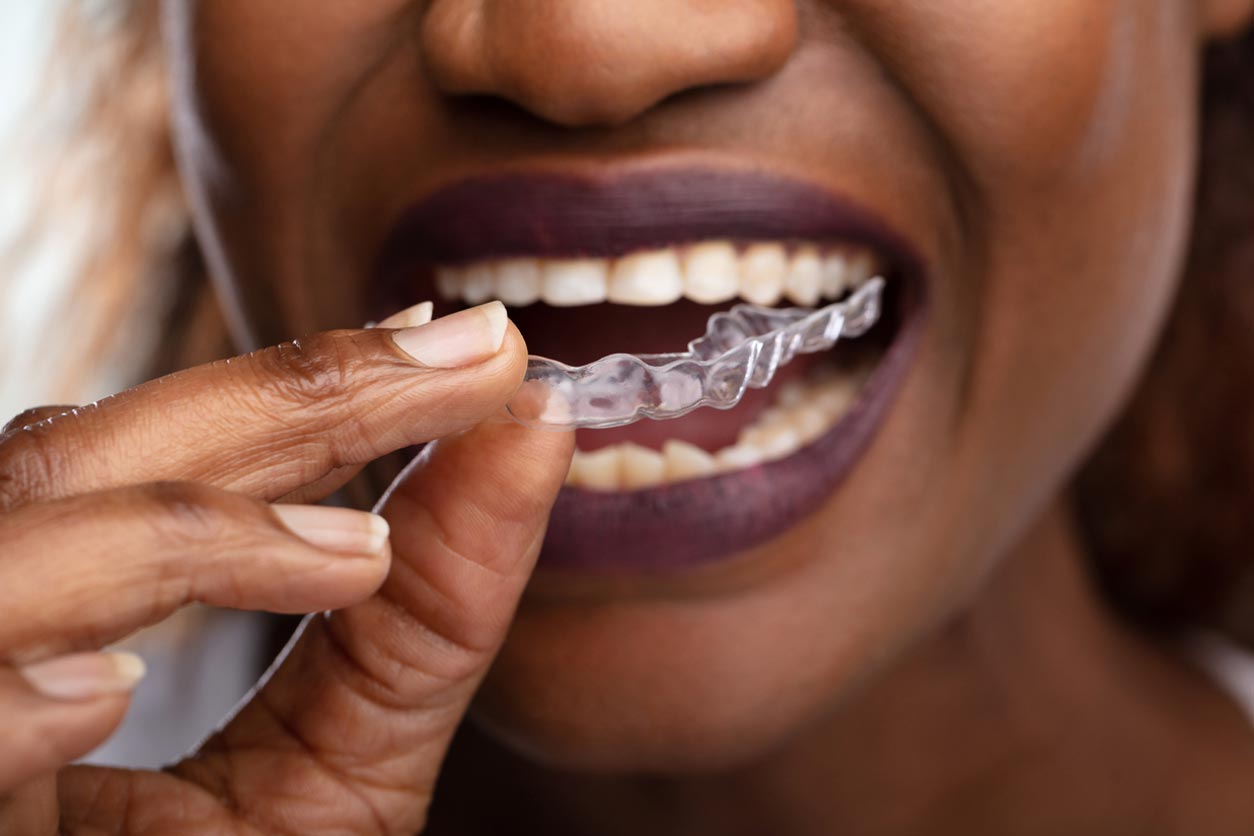What Causes Bruxism?
The cause of your teeth grinding may not be clear. Doctors cannot always diagnose the cause of bruxism in patients, although there have been strong connections between tooth grinding and increased levels of stress. NHS UK found that there is a strong connection between stress, anxiety, and bruxism. Stress can create many adverse effects within the body, and it is no surprise that the teeth often become the playing ground for the various physical effects of stress and anxiety. There are also several risk factors for bruxism that include:
- Sleep disorders or trouble sleeping
- Anxiety, stress, frustration, and anger
- Family history of bruxism
- Medications and substances such as tobacco, antidepressants, and caffeine, have been known to contribute to symptoms of bruxism
- Previously diagnosed disorders such as GERD, ADHD, nervous system disorders, and some mental health disorders
What Are Some Common Symptoms of Bruxism?
- Tooth pain and hypersensitivity
- Ongoing soreness in the jaw and neck
- Pain in the ear that is not an earache
- Disrupted sleep
- Chipped, loose, or fractured teeth
- Loud clenching and grinding
- Locked jaw or a jaw that cannot open all the way
- Tightened face muscles
Are There Any Bruxism Treatment Options?
Depending on the age of the patient and severity of bruxism, treatment may be necessary. It can often depend on the answer to why you grind your teeth. In some cases, young patients may grow out of the symptoms and have no lasting effects. Those in adulthood who have already shown increased signs and symptoms may need to invest in one of our dental treatment options. The most popular treatment for bruxism is to get fitted for a bite guard or a nightguard. This is a professionally-made dental appliance that fits over your teeth to provide a cushion, preventing them from gnashing on each other throughout the night. This can help you sleep more comfortably while reducing the physical impact and trauma created by your constantly grinding teeth. There are other treatments available, depending on your needs. Our dentists can write a referral to your trusted sleep doctor or surgeon if more medical intervention is needed.
Solve Your Problems with Bruxism Today!
Grinding your teeth can wear you down physically and mentally. Each night, your teeth gnash at each other, leaving your jaws feeling sore and broken when you wake up. While it can be challenging to determine the cause, you can invest in a treatment that will reduce the pain and discomfort suffered by your teeth. To get started, contact us online, or give us a call at 714-677-8575 to schedule an appointment.

